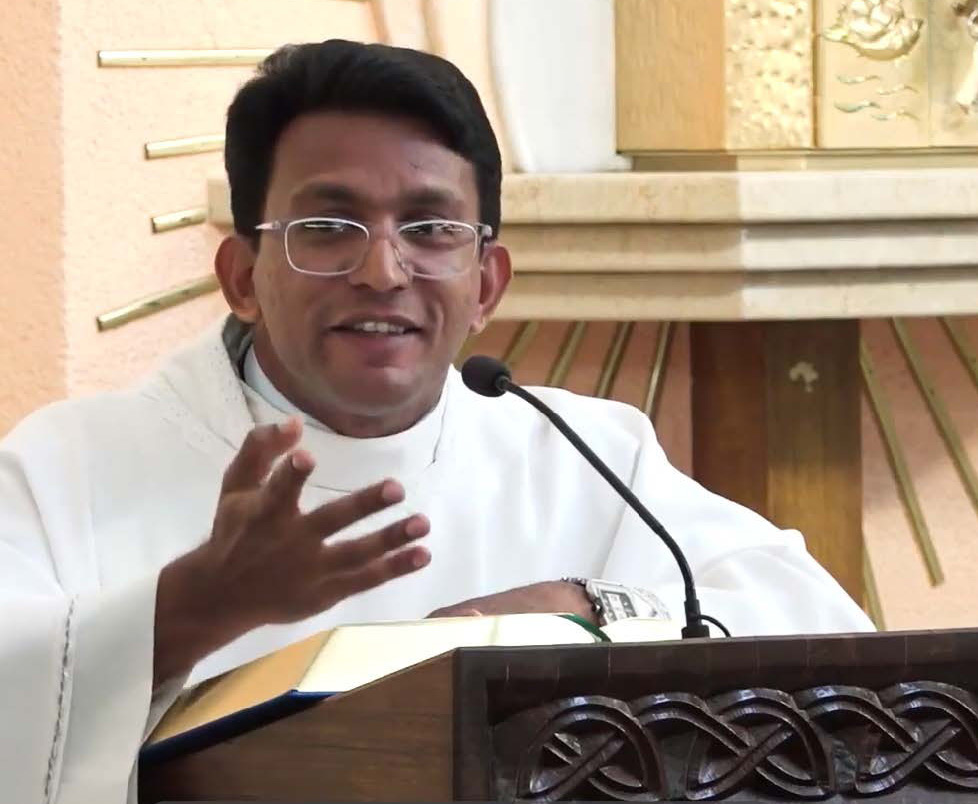The Spirit of Medjugorje
Medjugorje Message August 25, 2025
"Dear children, my little children, my beloved ones: you are chosen because
you have responded, you have put into practice my instructions and love God
above all else. Therefore, little children, pray with all your heart that my
words may be realized. Fast, sacrifice yourselves, love out of love for God
Who created you, and be, little children, my extended hands to this world
that has not come to know the God of love. Thank you for having responded to
my call. (With Ecclesiastical approval)"
Issues
Featured Articles
With Mary, You Run to Jesus
The following is a "Holy Spirit Moment" taken from the English
Mass homily in Medjugorje on 2/26/25 by Fr. Bosco Thomas, a
priest from India. "Holy Spirit Moments" is a feature that can be
found on marytv.tv in their Video Library.
I was born in a Catholic family, and we used to say a
Rosary every night. That's part of our evening prayer. I had
my doubts about this prayer. I said, "Father, why do we say
this prayer, [the] Rosary, every day?
Can we not skip this sometimes and say
some other prayers?"
"You know," he told me, "Bosco, you
do not know the power of it. Tell me,
who taught you, who taught us to pray
[the] Our Father?" I said, "It's Jesus."
But he asked, "Which prayer is more
powerful than that? You are saying that
prayer in [the] Rosary."
Secondly, he tells me, "'Hail Mary,
full of grace, the Lord is with you,' -
who said to whom?" Who said to
whom? Can somebody answer?
[Answer - "Archangel"]. It's not
Archangel. Actually, I was sort of thinking that, you know.
It is God the Father. God the Father Himself said [this] to
Mother Mary. Archangel was only a messenger who carried
the message. It is God the Father himself addressing to Mary
as "Hail Mary, full of grace, the Lord is with you."
And the second part, "Blessed are you among women,
and blessed is the fruit of your womb, Jesus." Who said
that? We say Elizabeth, right? It's not Elizabeth. It's the
Holy
Spirit
who said it. Okay, so this is the Word of God. We
are reciting, repeating the Word of God.
That's why this prayer is so powerful!
And the "Glory be to the Father and
to the Son and to the Holy Spirit" - we
are glorifying the Triune God - Father,
Son, and Holy Ghost. So how can this
prayer not be powerful? How can we
skip this prayer?
So ever since, my dear brothers and
sisters, I have tried never to skip this
prayer. And it is so powerful.
And then he said, "One more thing,
Bosco. You can go to Jesus without
Mary, but without Mary, you walk
to Jesus. With Mary, you run to Jesus.
With Mary as your beloved Mother, you fly to Jesus - which
is easier."

